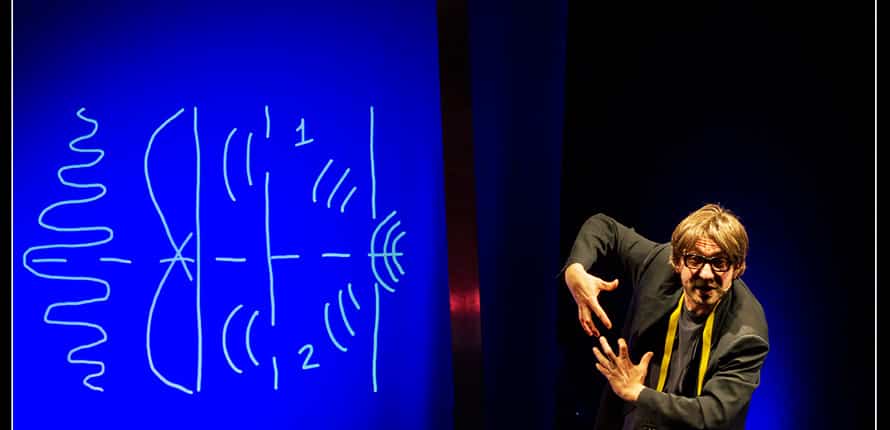How can we produce a scientific “genius”? Hard to tell. There are clear necessities but also unfathomable characteristics. Genetics and sheer good luck really matter (some level of intelligence seems to be inherited, but not all siblings get it) but so much has to do with serendipity. In any case, the scientific community has a hard time even defining what intelligence is! So much for producing a genius! Maybe in the age of AI we will create geniuses in factories, but right now we are still dealing with time tested biological intelligence and so humans must rely on good intentions, hard work and old fashioned education to excite young minds, without really worrying whether they will reach the highest peaks of brilliance, knowledge and research.
If we agree on what has been written above, one element is nevertheless fundamental: curiosity. Without it there can be no knowledge because the learning process is sterile without the desire to learn! Curiosity did kill the cat, but what did the cat discover in the process? This gruesome image is a fitting one when we realize that learning is keen to pushing self boundaries to the limits, opening up one’s personal horizons, moving into uncharted territories and sometimes even taking chances and risks. Curiosity is definitely the number one ingredient that has motivated each and every genius of humanity to pursue her or his studies. But curiosity means nothing without the ability to pose questions, even the wildest and most random ones. Questions are necessary in the process of learning and discovery in any field of study but particularly in science and in art.
How to foster curiosity? Well… this is a very difficult question that has no clear answer (how could it be otherwise?). One way is to generate a sense of wonder about the world around us, its mechanisms, the people and the animals… in other words: everything. Everything is worthy of wonder: stars and galaxies, bees, a computer screen and the air we breathe. Why does the water flow out of a faucet the way it does? Why is it that honey crystallizes after a while, if left alone? Why does it snow, sometimes, even if the temperature is well above zero degrees centigrade? How does a tree know that it is time to shed its leaves? All we have to do is to ask questions. Wonder is something that cannot be taught, it can only be shared and shown by example. Parents, teachers, adults can set the example and they should! Nothing is more inspiring for a young mind than to see teachers and parents get excited about something! Society should also play its role. It should run away from vulgarity and ugliness and pursue beauty and optimism.
Easy to say but very complicated to do. At times we lack the awareness, sometimes the motivation and way too often the plain ability to see wonder around us. Nevertheless, there is one very special tool that can really work in the process of creating wonder: Theatre. Theatre is where we can ask questions. It is the territory of doubt and restlessness, of ideas, of storytelling, of change. Good theatre can be of great help in sparking the desire for understanding things, of creating the thirst for knowledge. Theatre is a wonderful tool. It can reach people’s hearts much faster than reason. Through theatre we can experiment with new ideas and see what results they produce. “What would happen if…” is the starting point of any new play but that is also the starting point of any novel scientific research. By using good theatre we can excite young people’s minds, free them from the “vulgarity” of daily life and let them fly a bit higher. Certainly… this is not the answer to all evils, but it is a good starting point.
At NEF2018 we will be bringing a theatre performance that aims at achieving exactly that. The Principle of Uncertainty is a play about quantum mechanics but in fact it is a confession about our love for the Universe and its mechanisms and life. Its contents are inspired by the American physicist Richard Feynman, arguably one of the most recognizable geniuses of last century. But The Principle of Uncertainty is also an example of how theatre can touch upon scientific matters with competence without becoming purely a pedagogical tool. The play has been performed at two editions of the Edinburgh Fringe Festival and in numerous venues throughout Europe and North America. Every time the play is performed, it generates positive questions in the audience and we have tangible proof that young people who attend the play want to know more about science. To us, this is a very encouraging result that we want to share.
The Principle of Uncertainty is one experiment in science communication through theatre, but it is not the only one! It fits within a wider framework that we call Jet Propulsion Theatre (JPT). The project is a Permanent Laboratory for the theatrical creation connected to science, the people of science and the scientific tale. The Principle of Uncertainty has been our first JPT production and we are extremely proud to be able to perform it at the Next Einstein Forum. We welcome the opportunity to bring it to Africa with the hope that it will allow us to engage in fruitful discussions about education, science, art and the importance of wonder in education. (Andrea Brunello)
How can theatre spark the love for science?
March 12, 2018
